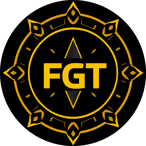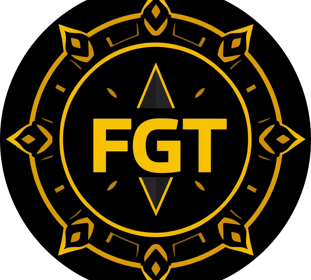The Critical Role of FGT in Virtual Real Estate: Unveiling Its Impact on NFT Trading, Land Ownership, and Metaverse Development
Why is FGT critical for virtual real estate? Discover its role in NFT trading, land ownership, and metaverse development.
Team Forgestone
3/14/20255 min read


Understanding FGT and Its Significance in Virtual Real Estate
Fungible Gaming Tokens (FGT) have emerged as a pivotal element in the landscape of virtual real estate, contributing significantly to the transaction dynamics within blockchain technologies. As a type of cryptocurrency specifically designed for gaming environments, FGT is characterized by its ability to be traded easily among users, replicating the functional aspects of traditional currency but in a digital context. This fungibility allows each token to be interchangeable, ensuring a seamless transactional flow in the acquisition and sale of virtual properties.
In the realm of virtual real estate, FGT serves as a medium for transactions involving land and other digital assets within various metaverse platforms. Unlike stablecoins or other forms of cryptocurrencies that may be pegged to real-world currencies or assets, FGT is intrinsically linked to the gaming ecosystem, making it uniquely suited for purchasing virtual land, game assets, and facilitating in-game transactions. This connection enhances user engagement and economic activity within virtual environments, underscoring FGT's vital role in the growth of digital marketplaces.
Another distinguishing feature of FGT is its liquidity. Due to the established trading protocols and the increasing popularity of virtual environments, these tokens are highly liquid, allowing users to quickly convert them into other cryptocurrencies or use them for purchasing virtual goods. This immediacy fosters a vibrant economic landscape where virtual land ownership can be readily bought and sold, promoting a healthy market for participants.
Moreover, FGT offers usability and convenience, integrating smoothly with digital wallets and metaverse applications. This integration simplifies the user experience, enabling users to engage in transactions without the complexities typically associated with cryptocurrencies. As virtual real estate continues to evolve, the significance of FGT will only amplify, further embedding itself in the framework of digital asset ownership and the ongoing development of the metaverse.
The Role of FGT in NFT Trading
The integration of FGT (Fictional Gaming Token) within the landscape of NFT (Non-Fungible Token) trading is increasingly pivotal. As virtual real estate continues to expand, FGT plays an essential role by serving as a medium of exchange, simplifying transactions for users. The ease of converting FGT into NFTs empowers users, facilitating the seamless acquisition and transfer of virtual assets. This direct correlation enhances user experience and broadens market access, thereby attracting a larger audience to the NFT ecosystem.
FGT not only streamlines the transaction process but also substantially improves market liquidity. By utilizing FGT in NFT trading, participants can engage in quicker buy and sell transactions without the drawbacks typically associated with traditional currencies or payment methods. This liquidity encourages both sellers and buyers to enter the market with greater confidence, knowing they can easily exit their positions when needed. Additionally, platforms leveraging FGT for trading often implement mechanisms that incentivize participants to trade more frequently, further enhancing liquidity.
Several prominent platforms have recognized the advantages of using FGT in their ecosystems for NFT trading. For instance, certain marketplaces allow users to trade digital artifacts, virtual land, and collectibles against FGT, creating a streamlined and efficient trading environment. These platforms not only ensure a high degree of reliability and security but also cultivate a sense of community among users who are engaged in the virtual property market. The implications for investors are significant; utilizing FGT enables easier access to a diverse range of assets, stimulating investment activity. Similarly, creators benefit from the enhanced exposure and sales opportunities presented by FGT-enabled platforms.
In essence, FGT stands as a cornerstone for NFT trading in the virtual real estate landscape, facilitating smoother transactions, fostering liquidity, and improving overall market accessibility for participants.
Land Ownership in the Metaverse: The Impact of FGT
As the metaverse continues to evolve, the concept of land ownership within these digital environments has gained significant attention. Central to this transformation is FGT, or fractionalized governance tokens, which play an essential role in facilitating secure and transparent ownership of virtual parcels. By leveraging blockchain technology, FGT allows users to buy, sell, and trade virtual land with a level of confidence previously unattainable in traditional real estate markets.
The integration of smart contracts within blockchain frameworks forms the backbone of land transactions in the metaverse. Smart contracts are self-executing agreements with the terms directly written into code. They ensure that once conditions are met, ownership and rights are automatically transferred without the need for intermediaries. This efficiency not only streamlines processes but also minimizes the risk of fraud, thereby enhancing the integrity of virtual land ownership.
When acquiring virtual land, users typically engage in a series of steps that include bidding, purchasing through platforms that accept FGT, and securing ownership via smart contracts. The clarity that FGT brings to these transactions is invaluable, providing a clear record of ownership and associated rights. Similarly, selling or transferring land becomes a straightforward process, as the blockchain ledger allows for easy access to historical data regarding ownership and asset value.
Legal considerations also arise in the context of virtual real estate. While ownership rights in the metaverse resemble those in the physical realm, they often lack comprehensive regulations. However, as the market matures, it is likely that legal frameworks will evolve to address these unique challenges. The parallels between real-world property ownership and metaverse land ownership might pave the way for innovative structures aimed at managing and utilizing digital real estate effectively.
Future Prospects: FGT's Influence on Metaverse Development
The integration of FGT within the metaverse is poised to reshape various facets of virtual real estate. As the landscape evolves, we can anticipate several significant trends that could redefine how users interact with and perceive digital spaces. One critical area is land development, where FGT can facilitate the creation of more sophisticated ownership and trading systems, allowing for seamless transitions between virtual assets. Such innovations may lead to decentralized marketplaces that are more user-friendly and accessible, contributing to a healthier virtual economy.
Furthermore, as the metaverse continues to expand, the role of developers and creators becomes increasingly vital. FGT could serve as a collaborative tool, promoting partnerships among artists, architects, and developers. By streamlining processes and providing a common framework, these stakeholders can work together to enrich the virtual ecosystem. For instance, shared infrastructure can enhance the visual appeal and functionality of virtual spaces, ultimately attracting more users and investors to the market.
However, the path ahead is not without challenges. As FGT gains traction in the realm of virtual real estate, several hurdles must be navigated. These include regulatory considerations, technological limitations, and the need for widespread user education regarding the benefits and uses of FGT. Addressing these challenges will be essential to unlock the full potential of FGT in the metaverse.
In summary, FGT has the potential to significantly influence the future of metaverse development, driving innovation in virtual real estate and transforming interactions for users. By capitalizing on emerging trends while addressing obstacles, stakeholders can create a more integrated, vibrant, and prosperous digital economy that benefits everyone involved. The continued collaboration and creativity facilitated by FGT may become the cornerstone of a dynamic metaverse, positioning it as a key component of our digital future.


